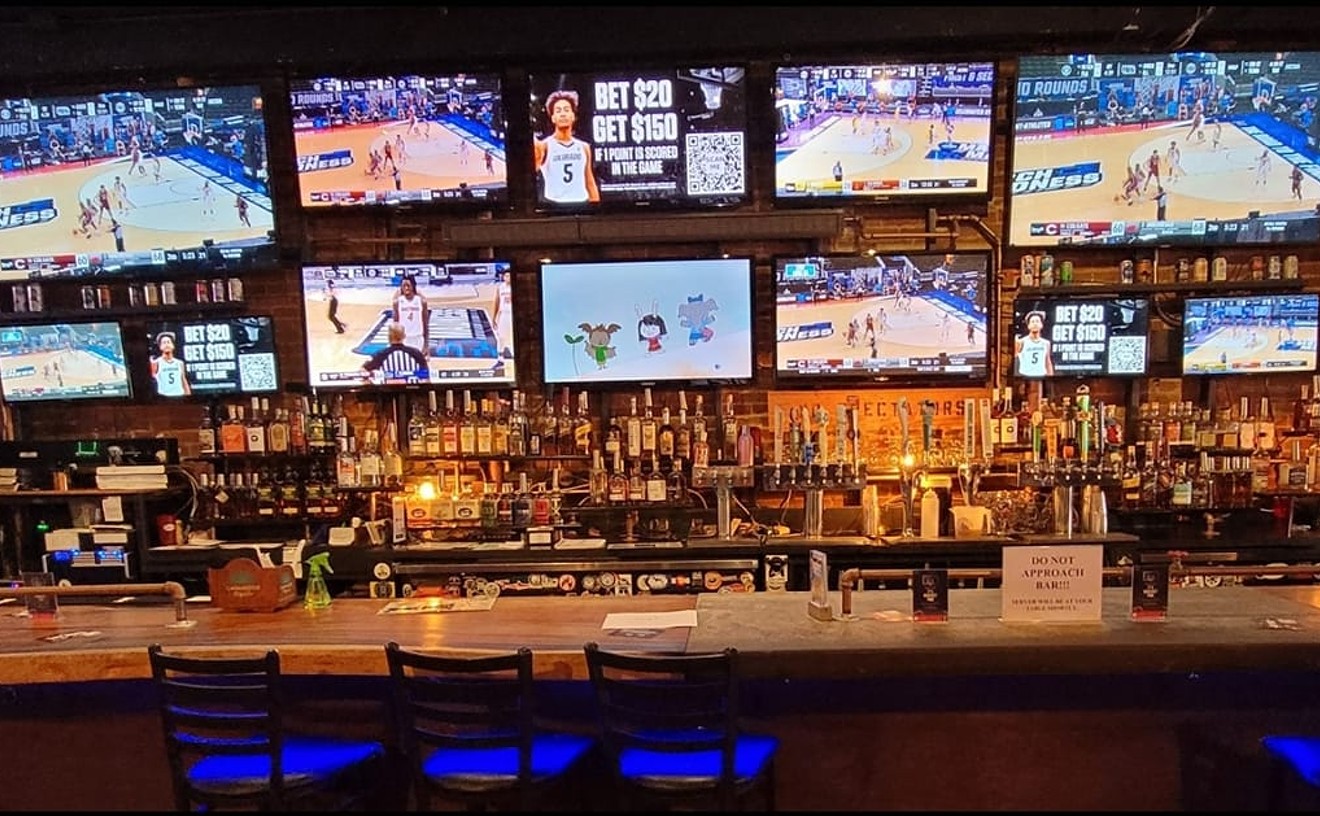There's been a rumble rising from deep inside the Oskar Blues headquarters in Longmont over the past few months, but it's been difficult to figure out what, exactly, is making all of that noise. It's certainly not the beer.
The answer may lie in a financial arrangement between the craft brewery and Fireman Capital Partners, a private equity firm in the Boston area that is known for investing in existing companies within the consumer sector, like the Surfside Coffee Company, the Newton Running shoe company — and the Squatters and Wasatch craft breweries in Salt Lake City.
But neither Oskar Blues nor Fireman would discuss the details of that arrangement. “Any messaging would be handled by Oskar Blues,” says Meagan Jennings-Berg of Fireman. “We are not providing commentary.”
“Our arrangement with Fireman is for us to continue to act the way we always have...which is to be nimble and aggressive and to continue to grow within the craft-beer segment,” says Oskar Blues spokesman Chad Melis, who confirms that a financial commitment was made by Fireman (and repeated that confirmation to the online publication CompanyWeek as well). “They are investing in us to keep us doing things the way we do them.”
Does that mean Fireman has taken a stake in Oskar Blues? A large stake? Melis won't say, noting that Oskar Blues prefers to “keep the focus on the beer.” Dale Katechis, who founded Oskar Blues in Lyons in 1997 and built it into the second-largest craft brewery in Colorado, is still running the show, Melis adds. “That guy is the energy here, and Fireman believes in him the same way we do. Oskar Blues continues to run as an independent Oskar Blues.” In fact, the brewery, which is known for its fiercely independent attitude and endeavors, just held one of its signature events, Burning Can, in Lyons last weekend.
Here's what's known about the Fireman deal:
On March 13, four of Fireman's directors, including Marla Sabo, filed paperwork with the U.S. Securities and Exchange Commission showing that they had raised $132.8 million in private equity in order to create an entity called United Craft Brews LLC, of which Sabo serves as the president.
Two weeks later, on March 27, Oskar Blues announced that it had purchased Perrin Brewing in Michigan. The details of that acquisition weren't revealed, but Oskar Blues hinted that it was interested in purchasing more breweries. The beer publication Brewbound reported then that the purchased was backed by Fireman.
It's difficult to know what craft breweries are worth on the open market since there have been very few sales in recent years — and the details of most of those sales are kept under wraps. But for some perspective, AB InBev — the parent company of Budweiser — purchased Chicago's Goose Island Brewing in 2011 for $38.8 million. A November Wall Street Journal article theorized that craft-beer makers are worth roughly $1,000 per barrel, but other reports have been skeptical of that number, saying it is very high. Four years after the Goose Island purchase, the $132.8 million raised by Fireman is still a lot of money if the goal is to purchase craft breweries.
Melis says he believes that “there is the development of an Oskar Blues holding company coming together,” but doesn't offer more details. “The support we have gotten has allowed us to act as Oskar Blues. We will use that money to act as Oskar Blues in the most aggressive way we can … and to continue to do what we have been doing.”
In the weeks since the Perrin sale, Melis adds, other breweries have contacted Oskar Blues to discuss possible sales.
The Boulder-based Brewers Association, the trade group representing craft breweries nationwide, is very adamant regarding what does and doesn't define a craft brewer – although BA spokeswoman Julia Herz says that definition has changed and will change again over time. One of the things that currently defines a craft brewer is independent ownership, more specifically: “Less than 25 percent of the craft brewery is owned or controlled (or equivalent economic interest) by an alcoholic beverage industry member that is not itself a craft brewer.”
But the association does not address ownership outside of beverage industry members, by such entities as equity and investment firms. So, Wasatch, Squatters and Perrin are all still considered to be craft brewers, while Goose Island is not, since it is owned by AB Inbev.
“You have two things going on – regional craft brewers who are thinking broader, and then the trickle down of the big guys buying smaller,” Herz says about the way the craft beer industry is changing. “So you will see an isolated number of independent brewers evolve in diversified business moves and different ways.”
Oskar Blues became the first craft brewer to can beer in 2002. The company opened a large production facility and taproom in Longmont in 2009 and began growing by double digits every year. Since then, Oskar Blues has opened three restaurants in Longmont, purchased a Boulder County farm and started a bicycle manufacturing and retail shop. It opened a second major production brewery in Brevard, North Carolina, in 2012 and now makes more than 150,000 barrels of beer per year between its three brewing locations.
Follow Westword's Beer Man on Twitter at @ColoBeerMan and on Facebook at Colo BeerMan
[
{
"name": "Air - MediumRectangle - Inline Content - Mobile Display Size",
"component": "12017618",
"insertPoint": "2",
"requiredCountToDisplay": "2"
},{
"name": "Editor Picks",
"component": "17242653",
"insertPoint": "4",
"requiredCountToDisplay": "1"
},{
"name": "Inline Links",
"component": "18838239",
"insertPoint": "8th",
"startingPoint": 8,
"requiredCountToDisplay": "7",
"maxInsertions": 25
},{
"name": "Air - MediumRectangle - Combo - Inline Content",
"component": "17261320",
"insertPoint": "8th",
"startingPoint": 8,
"requiredCountToDisplay": "7",
"maxInsertions": 25
},{
"name": "Inline Links",
"component": "18838239",
"insertPoint": "8th",
"startingPoint": 12,
"requiredCountToDisplay": "11",
"maxInsertions": 25
},{
"name": "Air - Leaderboard Tower - Combo - Inline Content",
"component": "17261321",
"insertPoint": "8th",
"startingPoint": 12,
"requiredCountToDisplay": "11",
"maxInsertions": 25
}
]











